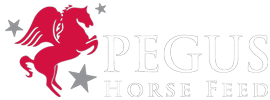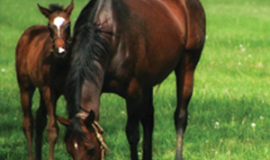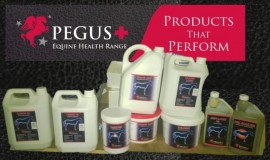The availability of minerals in rations for horses
In forages and grains the minerals are incorporated organically into plant cells and structures. Most compound feeds have been fortified with extra minerals during production. The mineral premixes used in feed production may have their active minerals bound to organic molecules (often called chelated ), or come as finely ground rock minerals (often called inorganic minerals). For some minerals, like selenium, organic forms seems to be more easily absorbed, while there are less conclusive evidence on other minerals.
Minerals like calcium, zinc, copper and selenium, among others, support body functions such as growth, tissue maintenance, immune responses, reproduction, nerve function and general health. Mineral deficiencies lead to disease or underperformance. Horses receive minerals through all parts of their diet. When we provide extra minerals in compound feeds or in mineral supplements, this is traditionally in the form of inorganic salts. Minerals can, however, also be bound to organic molecules, such as amino acids and proteins. Minerals bound to organic molecules are called organic or chelated minerals.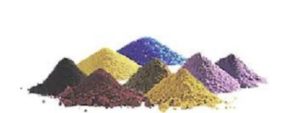
In the intestinal tract, the minerals are mainly absorbed from the first part of the small intestine (duodenum). Here we find different specific systems transporting minerals ions through the gut wall and into the blood stream. The digesta in the duodenum retain some of the acidity from the stomach, which helps to maintain the minerals as free ions, i.e. the form in which most minerals are absorbed.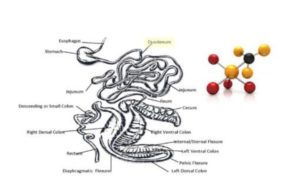
There is much discussion about the digestibility and bioavailability of different sources of minerals, meaning how efficiently they will be absorbed and thereafter utilised in the body.
On the internet, a search for “chelated minerals for horses” produces many hits. Most articles are written as part of the marketing of products containing chelated minerals. It is often claimed that chelated minerals in a given product are taken up by the horse in a better way than what is the case with the inorganic forms. Products with chelated minerals are generally more expensive than similar products with inorganic minerals.
The picture is somewhat different in literature reporting experiments comparing the absorption of inorganic and chelated minerals. The official American standard of nutrition of horses (Nutrient Requirements of Horses, NRC 2007) comments on how well minerals are absorbed on the basis of published results of digestibility trials. The findings are not always as clear as claimed in advertisements for chelated minerals. Indeed, some minerals have a somewhat better absorption in chelated than in inorganic form, others have a similar, or even lower absorption. The main message from the NRC 2007 publication appears to be that there are no major differences between inorganic and chelated minerals in respect to sustaining adequate minerals nutrition.
When calculating the need for individual minerals, NRC takes into account how well the mineral is absorbed. For a mineral where 50% of the content of the feed is absorbed, NRC puts the horse’s daily requirement to twice the amount which the body needs to absorb from the gut. Thus, when using mineral requirements as published by the NRC, Pegus PC-Horse also takes into account how well the different minerals in the total ration will be absorbed by the horse.
Pegus PC-Horse program calculates the minerals needed by all types of horse according to NRC 2007 standards. In respect to minerals for horse nutrition, we consider these standards to be the best currently available.
As more scientific evidence becomes available on the absorption and utilization of various chemical forms of minerals, we will incorporate it in the calculation engine of the Pegus PC-Horse program, enabling us to provide ever better nutritional advice to horse owners.
For more information on Pegus Horse Feed and diet consultation contact info@pegus.ie or contact us on our
Free Phone Helpline R.O.I.= 1800-378463 UK = 0800 011 4182
www.pegus.ie
